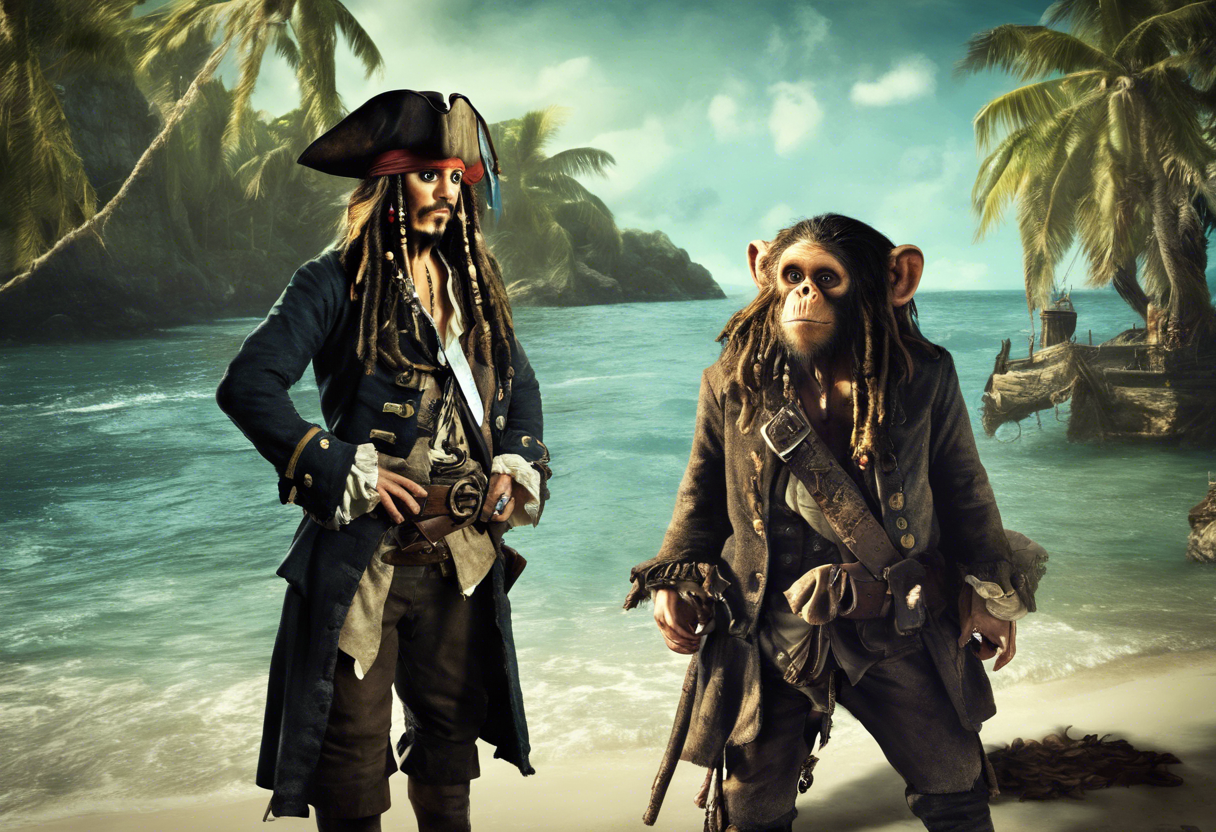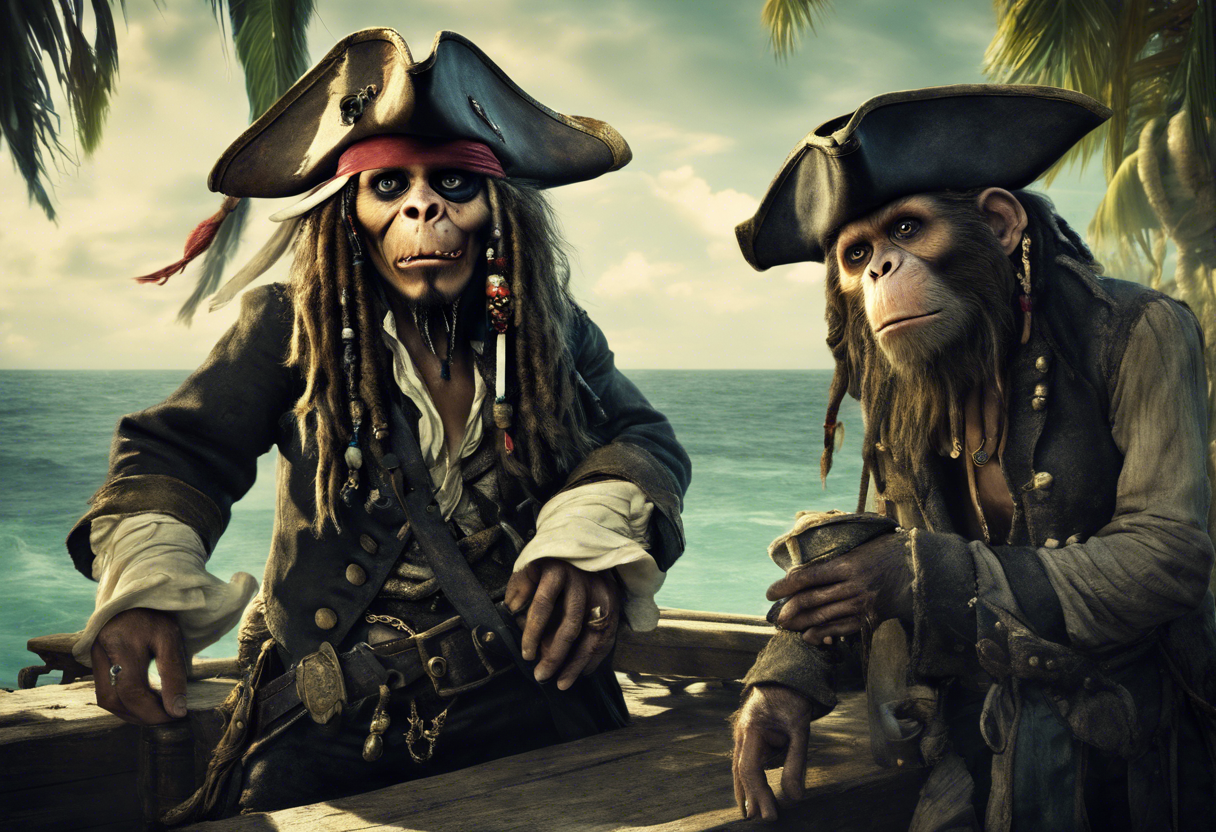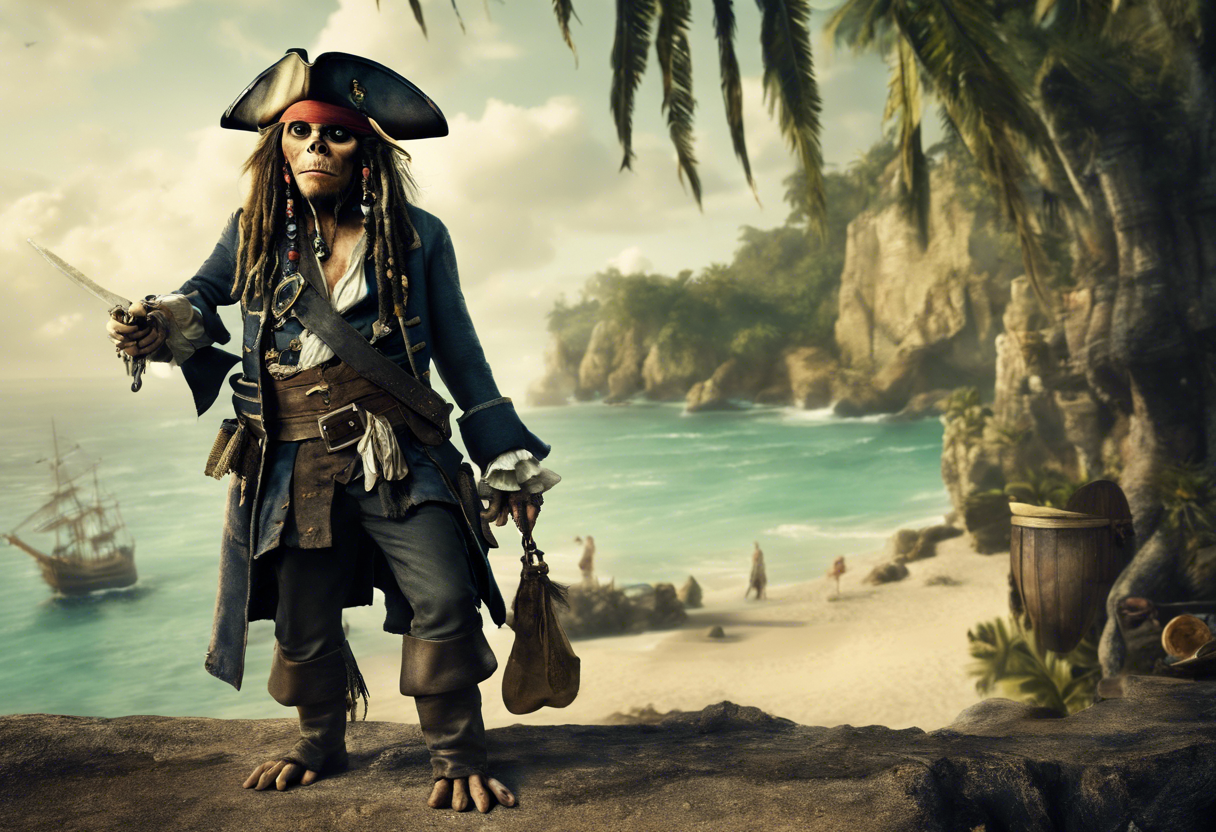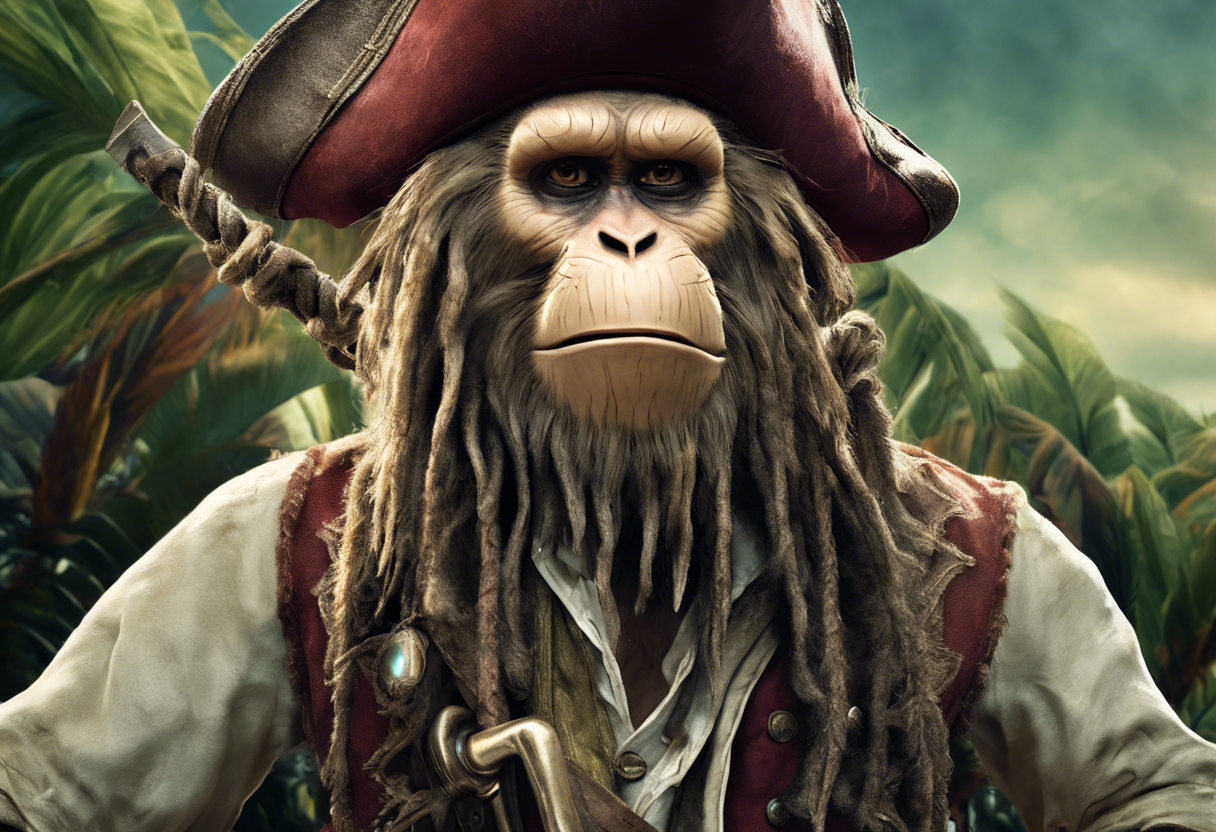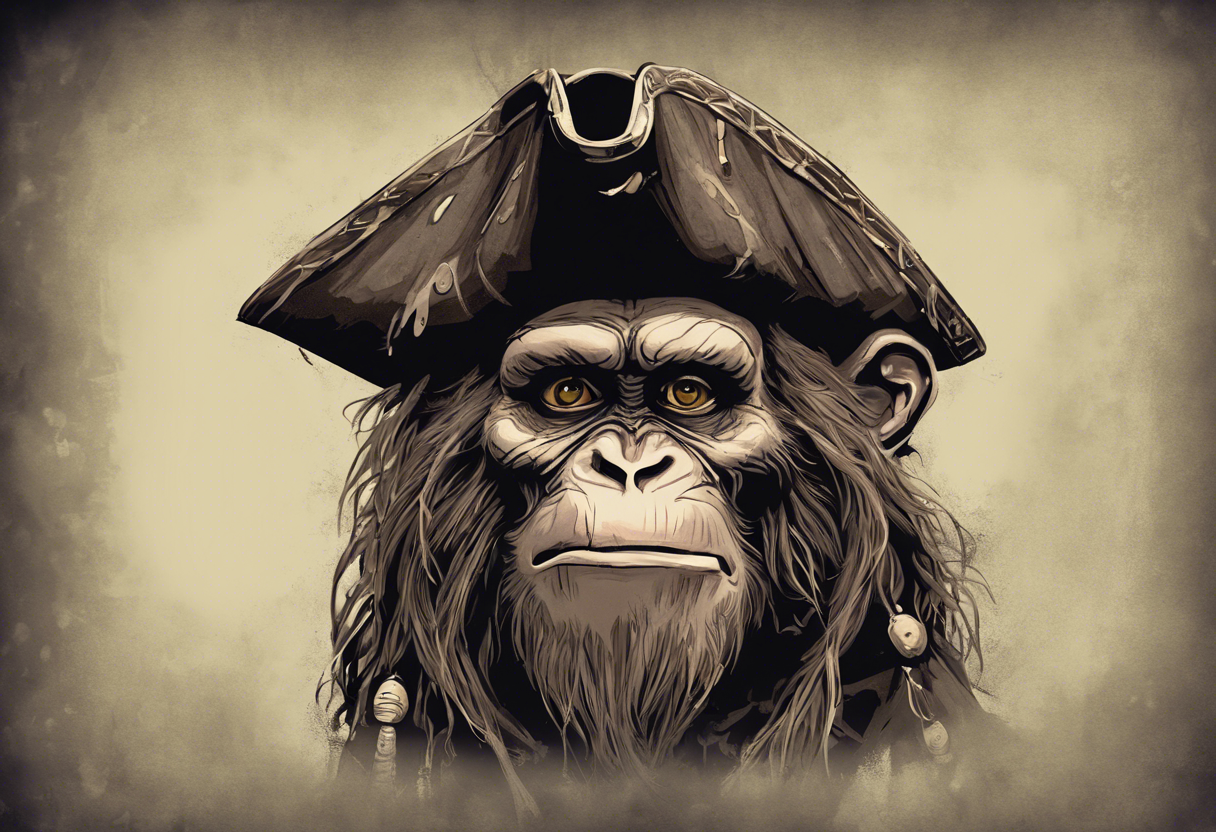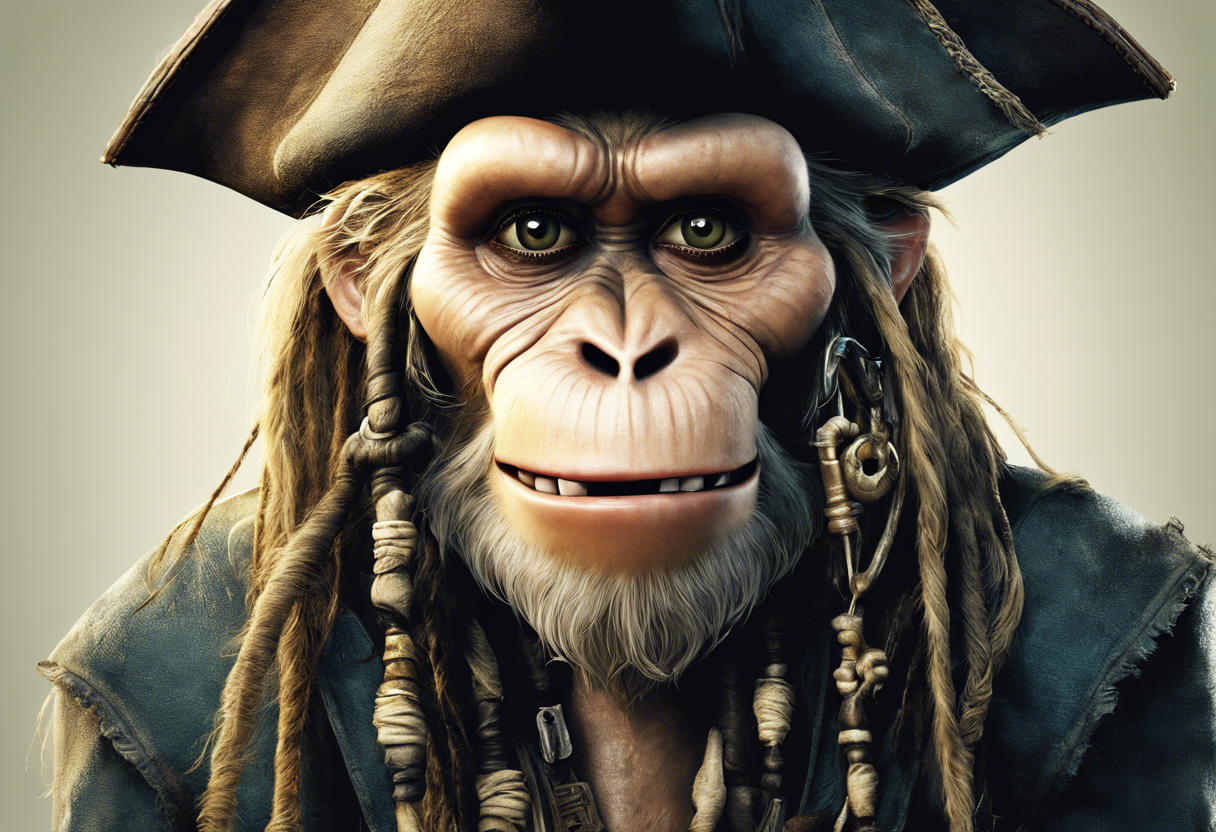Contents
Jack the Monkey: A Loyal and Cunning Companion in the Pirates of the Caribbean Franchise
Introduction
Jack the Monkey is a pivotal and enduring character in the Pirates of the Caribbean franchise, known for his loyalty, intelligence, and mischievous nature. Named after the infamous Captain Jack Sparrow, Jack the Monkey is a capuchin monkey who has been a constant presence throughout the series, accompanying key characters such as Captain Barbossa and later Captain Jack Sparrow. This article delves into the creation, backstory, and significance of Jack the Monkey, as well as his role in the narrative, character analysis, themes, cultural impact, critical reception, and lasting legacy.
Creation and Backstory
Jack the Monkey was introduced in the first film, Pirates of the Caribbean: The Curse of the Black Pearl, as a loyal companion to Captain Barbossa. The character was portrayed by multiple capuchin monkeys, including Tara and Levi in the first film, and later by Chiquita and Pablo in subsequent movies [1][5]. This approach was necessary due to the nature of animal actors and the long production span of the franchise.
Role in the Story
Early Appearances
In The Curse of the Black Pearl, Jack the Monkey plays a significant role in the early scenes, particularly in the exchange between Captain Jack Sparrow and Captain Barbossa. The monkey delivers a crucial gold medallion to Barbossa, prompting a memorable dialogue where Barbossa clarifies that the name "Jack" refers to the monkey, not Captain Jack Sparrow [1][5]. This scene sets the tone for the monkey’s character: intelligent, resourceful, and fiercely loyal.
Loyalty and Greed
Throughout the series, Jack the Monkey remains a faithful companion, first to Barbossa and later to Jack Sparrow. His actions are often driven by a mix of loyalty and greed, as he is depicted as being keenly aware of the importance of the Aztec gold and other valuable items. This dual motivation makes him a compelling character, as he navigates the complex web of alliances and betrayals within the pirate world.
Key Events and Conflicts
Jack the Monkey is involved in several key events across the franchise. He is present during the battles and adventures of both Barbossa and Jack Sparrow, often providing comedic relief or assisting in critical moments. For instance, his ability to retrieve items or distract enemies proves invaluable in various scenes. Despite his minor role in the overall plot, his presence adds depth and continuity to the narrative.
Character Analysis
Personality and Motivations
Jack the Monkey is characterized by his intelligence, cunning, and loyalty. He is described by animal trainer Ursula Brauner as the "smartest person in the film" because he never loses sight of the goal, unlike the human characters who are plagued by human frailties such as betrayal and jealousy [5]. His motivations are simple yet effective: he is driven by a desire to protect his owners and secure valuable items.
Strengths and Flaws
One of Jack’s greatest strengths is his adaptability and quick learning. Capuchin monkeys are known for their intelligence, and Jack’s character leverages this trait to navigate the complex and often dangerous world of pirates. However, his greed can sometimes be a flaw, as it leads him to prioritize material gain over other considerations.
Development
Throughout the series, Jack the Monkey evolves from being a mere sidekick to a symbol of continuity and loyalty. His interactions with various characters, particularly Barbossa and Jack Sparrow, reveal a deep-seated loyalty that transcends the changing alliances and betrayals within the pirate world.
Themes and Symbolism
Loyalty and Betrayal
Jack the Monkey embodies the theme of loyalty, standing by his owners even in the face of danger. This loyalty contrasts with the frequent betrayals among the human characters, highlighting the monkey’s unwavering commitment. His character also symbolizes the idea that loyalty can sometimes be driven by self-interest, as seen in his pursuit of valuable items.
Intelligence and Resourcefulness
The monkey’s intelligence and resourcefulness are symbolic of the resourceful nature of pirates. His ability to adapt and solve problems reflects the ingenuity and cunning that are hallmarks of the pirate genre.
Cultural Impact
Reception by Fans
Jack the Monkey has been well-received by fans of the Pirates of the Caribbean franchise. His antics and loyalty have made him a beloved character, often remembered for his memorable scenes and interactions with the main characters.
Portrayal in Adaptations and Spin-Offs
While Jack the Monkey is primarily known from the film series, his character has been referenced in various adaptations and spin-offs, including video games and theme park attractions. His enduring presence in these media underscores his significance within the franchise.
Influence on Popular Culture
Jack the Monkey’s influence can be seen in the broader depiction of intelligent and resourceful animal characters in popular culture. His character has contributed to the trope of the clever and loyal animal sidekick, a staple in many adventure films and series.
Critical Reception
Praise and Controversies
Critics have generally praised Jack the Monkey for his entertaining and memorable performances. However, some have noted that the use of animal actors raises ethical concerns, particularly regarding the treatment and welfare of the animals involved.
Varying Interpretations
Audiences have interpreted Jack the Monkey in various ways, some seeing him as a symbol of loyalty and others as a representation of the cunning and greed that are central to the pirate genre. This diversity in interpretation highlights the complexity and depth of the character.
Legacy
Enduring Appeal
Jack the Monkey’s enduring appeal lies in his combination of intelligence, loyalty, and comedic relief. He remains one of the most recognizable and beloved characters in the Pirates of the Caribbean franchise, a testament to the lasting impact of well-crafted and memorable characters.
Relevance in Contemporary Discussions
In contemporary discussions about animal welfare and the ethics of using animal actors, Jack the Monkey’s legacy serves as a point of reference. The current whereabouts of Tara, one of the original monkeys to portray Jack, who now resides at the Animal Tracks sanctuary, underscore the importance of ensuring the welfare of animals in entertainment [1].
Inspiration for Other Works
Jack the Monkey’s character has inspired other works and character archetypes, particularly in the realm of adventure films and series featuring intelligent and resourceful animal companions.

